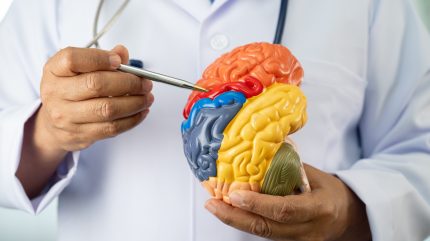
The University of California, San Diego (UCSD) has initiated a clinical trial to assess Nexalin Technology’s Halo Clarity device for treating mild traumatic brain injury (mTBI) and post-traumatic stress disorder (PTSD) in military personnel and civilians.
The announcement follows the Institutional Review Board’s (IRB) approval, pilot testing, and assessment of the company’s technology at the university. The university received the first shipment of devices for the trial.

Discover B2B Marketing That Performs
Combine business intelligence and editorial excellence to reach engaged professionals across 36 leading media platforms.
Subject recruitment is underway for the study, which will explore the company’s device that utilises the Deep Intracranial Frequency Stimulation (DIFS) technology.
This technology eliminates the need for drugs or invasive procedures to offer non-invasive deep-brain stimulation.
The company stated that the initial Halo Clarity devices, which have been randomised and integrated with the company’s remote monitoring system controlled by the app, will facilitate oversight of treatment adherence and progress.
As the trial advances, an additional 40-50 devices will be delivered.

US Tariffs are shifting - will you react or anticipate?
Don’t let policy changes catch you off guard. Stay proactive with real-time data and expert analysis.
By GlobalDataThe device offers a drug-free option for mental health and neurological conditions. It is tailored for at-home convenience to increase patient compliance.
It also allows for real-time capturing of the data and physician oversight via the company’s patient monitoring system (PMS) and electronic data capture (EDC) platform.
Nexalin Technology CEO Mark White said: “The initiation of patient recruitment marks a major milestone in the validation of our Halo Clarity device for TBI and PTSD treatment.
“UCSD’s independent study is a crucial step in demonstrating the transformative potential of our DIFS technology for military personnel and others affected by these conditions.”
Nexalin is focused on advancing neurostimulation technologies to meet the critical needs in mental health and neurological care. Leveraging bioelectronic medical technology, the company aims to treat mental health issues.
In March 2024, Nexalin announced positive outcomes from a trial evaluating its neurostimulation device in veteran patients with combat-related mTBI.





